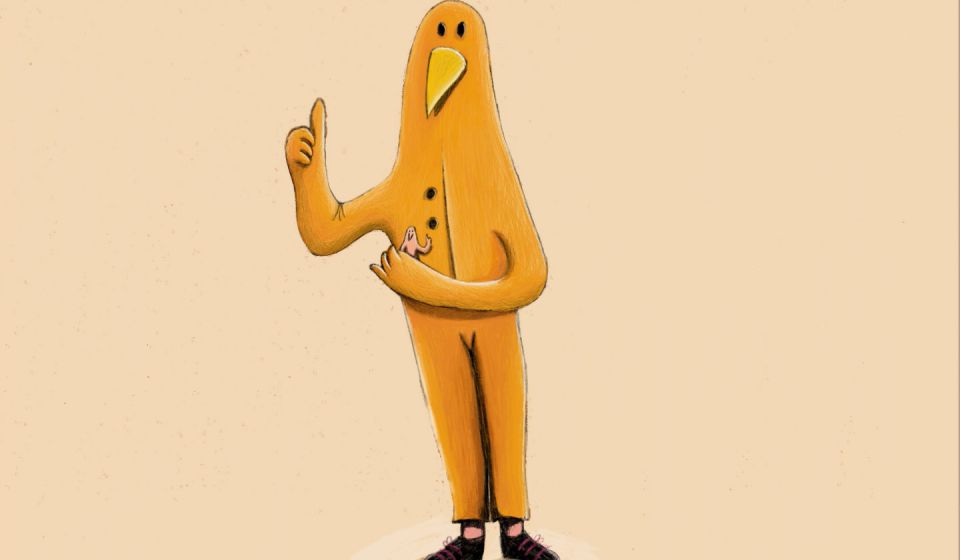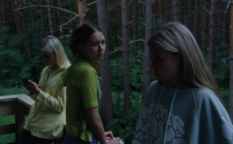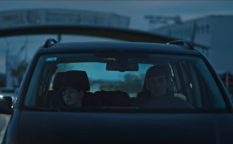Review: In the Upper Room (2022)

Growing up is made of memories, questions, answers, occasional regrets and lessons learned, sometimes in the most unusual of places. Even the most banal things or skills can serve as powerful metaphors for young people growing up and those who go older. That is certainly the case with the animated short In the Upper Room written and directed by an Austrian student of MOME – University of Art and Design in Budapest Alexander Gratzer, which had its festival premiere at the national competition of Vienna Shorts, where it won the Jury Prize.
The young mole Alexander remembers his visits to his blind grandfather who lived somewhere far away in a hole. As a youngster, he had many questions for him that he never had the courage to ask. Instead he picked some pieces of wisdom, like how to crack nuts, or how to perform little mischieves, like “borrowing” grandpa’s hammer, making the old mole learn a new trick and crack nuts with his fake teeth. The only questions Alexander dared to ask are (1) how grandpa could know how his grandson looks and (2) what is the thing with the bird costume. Once the grandfather died, Alexander sets to pay his respect in a unique way…
Animated in gentle fashion, with simple, child-like drawings as the founding material, In the Upper Room is a proper coming-of-age film that speaks loudly enough to both the younger and grown-up audiences. Gratzer’s own music on acoustic guitar accompanies the plot and the topics it touches very well, while the sound design by Csaba Kalotás mimicking the sounds of the wind howling and birds chirping, sets in at just the right time. The warmth of this short is just mesmerizing.
Year: 2022
Runtime: 8’ 9’’
Country: Hungary
Language: English
Directed by: Alexander Glatzer
Written by: Alexander Glatzer
Animation by: Alexander Glatzer, Sebastian Doringer, Gábor Mariai, Natália Andrade
Backgrounds and colouring: Alexander Glatzer
Music by: Alexander Glatzer
Sound design: Csaba Kalotás
Produced by: József Fülöp
Production company: MOME – University of Arts and Design Budapest
Supported by: National Film Institute Hungary
















